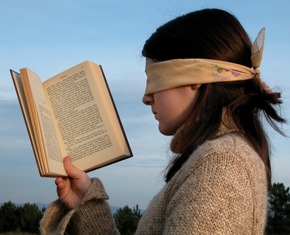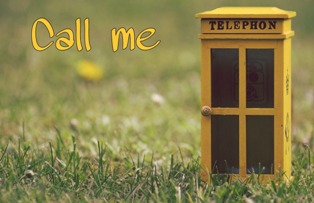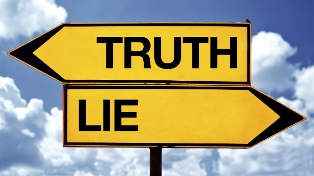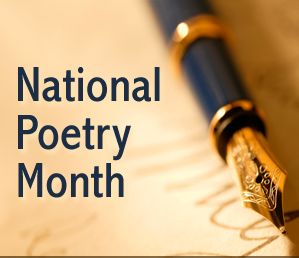13 Author Do's and Don'ts in Everyday Dealings: Part I
A friend and well-respected author, Robbie Cox, recently completed writing a series of articles on Author Etiquette at Book Conventions/Signings, including tips and tricks to help authors succeed when attending these conferences.
The series is chock full of excellent advice, especially for first timers. Actually, every author can do with a little brushing up and I recommend reading him because things change. We should all keep up with what’s new and trendy. Besides, common sense sometimes needs a good kick in the rear, right?
Sometimes it seems that writers and authors can be rude or careless in their dealings with others. In some instances, the thoughtless actions aren’t malicious, just unthinking. No excuse people!
Remember that every action you take as an author is a reflection of you, the businessperson. It is a measure of your character, your integrity and your reputation. Think it doesn’t matter? Trust me, word gets around when an author is less than considerate or is in fact a jerk. On the other hand, an author that builds strong relationships with gracious attention to detail, professional attitudes and an honest way of doing business makes you someone people will trust and therefore, invest in.
Robbie’s articles got me thinking. I remembered some recent events that I found disturbing or annoying when dealing with other authors, publishers and business associates. These thoughts led to a realization that I can add some sage advice to Robbie’s. I hope he doesn’t mind.
So here is a baker’s dozen of Do’s and Don’ts for Authors in Everyday Dealings in two parts.
PART I
BOOK BLURBS

- If asked to provide a “blurb” for someone’s book, DON’T do it if you haven’t read him or her before. What can you actually say that has validity if you don’t know the work? Don’t demean your professional name by telling generalities or falsehoods.
- If you have been asked to provide a “blurb” for someone’s book, and you know the work, DO provide said blurb by the requested date. If no date is given, use the three-day rule and advise the author that you will meet this date. Telling the author does two things. First, it holds you accountable and second, it gives the author a heads up and an opportunity to tell you if there is a need for it earlier.
- If you are the one asking for the blurb, remember that you sought out the other author. Be gracious and show your gratitude for their belief in you by sending them a copy of your book when it is published. Their contribution helped you; the least you can do is provide a free copy to say thanks. And yes, showing gratitude is always better than telling right? Writers know this.
PHONE CALLS

- How much work do you do on the phone? More than you think, probably. If you are like me, I let all calls go to the answering machine and then I return calls from those who leave messages and from names I know.
- Just because you know someone is no reason to treat them with less respect than strangers. In fact, it is more reason to give them your very best because you know them. Show your respect, and DO return calls to familiar folks within 24 hours (unless they ask you to call sooner). I try to return calls from friends and co-workers on the same day. DON’T take those closest to you for granted. Believe me, one day they will resent you for it.
- If someone calls you and this is an unknown connection, remember your professional self is on the line. DON’T keep people hanging. DO return calls within 24-48 hours, unless asked to do so earlier. DON’T turn to emails or text messaging instead. This is insulting and unprofessional, unless told this is permitted.
- I have the luxury of being able to work from home. Many authors aren’t like me and you have to remember this when using the phone. DON’T always expect people to call you during the day. Most authors have (forgive me) a “real” job (I call it the filler job), and won’t be available until after 5pm or later. When reaching out to authors, DON’T be upset if you need to leave a message. DO tell the contact when you can be reached. Allow for some time in the evening to take calls. In my case, I don’t take business calls after 7:00pm unless time zones require it or pre-arranged agreement are a factor. My evenings are my family time and I try to give the same respect to other writers. Have boundaries and make them a professional standard to be emulated.
- I really hate to mention this one but, manners, people! Take yours out and dust them off. DO say please and thank you. DON’T say “yeah” to professionals who are only able to gauge your professional self by what they hear. Are you a “punk” or wouldn’t you like to be received as a smart, sharp, pro? Think it doesn’t matter? Just think of every phone call as a potential job interview. Whom would you hire? Would you leave a strong, good first impression over the phone?
- Okay so you are now dealing with an asshole on the phone. Does it make you become one, too? I hope not. DON’T ever, EVER, lose your professional cool on the phone. DON’T raise your voice. No shouting matches. Never lower your standards just to make a point. Continue to behave professionally even when you want to crawl through the phone and beat someone. Remember you have standards and, by jove, use them at all times. Let the assholes learn something from you. Maybe they are only an asshole that day. Tomorrow, they might remember how cool you were under pressure. DON’T ever lose sight of your image and your reputation.
Practicing these good behaviors will only help you in your career.
Let me hear from you! And thanks for stopping by!
Yours Between the Lines,
Sherry
_________________________________________________
****The following items will always appear to keep you posted on activities.*****
WIP (Works in Progress): – NEW BOOK OF POETRY! – expected release July 2016
– first novel in the Evening Bower series, about vampires and other supernatural creatures
– fictional memoir – November 2016!
– four-part fairy story (part one complete)
On the Desk: (next reading): TBD
Off the Desk (book just finished): League of Dragons – Naomi Novik
Coming Soon: Interview with new folks and more about upcoming projects. Plus meet my assistant (yes, you want details!)

















